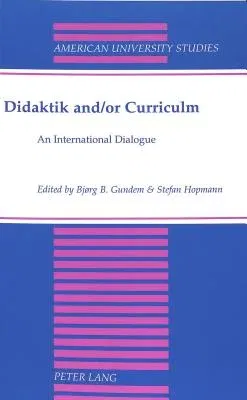Didaktik And/Or Curriculum: An International Dialogue (Revised)Paperback - Revised, 28 May 2002

Qty
1
Turbo
Ships in 2 - 3 days
In Stock
Free Delivery
Cash on Delivery
15 Days
Free Returns
Secure Checkout

Part of Series
American University Studies
Print Length
368 pages
Language
English
Publisher
Peter Lang Inc., International Academic Publishers
Date Published
28 May 2002
ISBN-10
0820433853
ISBN-13
9780820433851
Description
Product Details
Book Edition:
Revised
Book Format:
Paperback
Country of Origin:
US
Date Published:
28 May 2002
Dimensions:
23.01 x
16 x
1.98 cm
ISBN-10:
0820433853
ISBN-13:
9780820433851
Language:
English
Location:
New York
Pages:
368
Series:
Weight:
557.92 gm